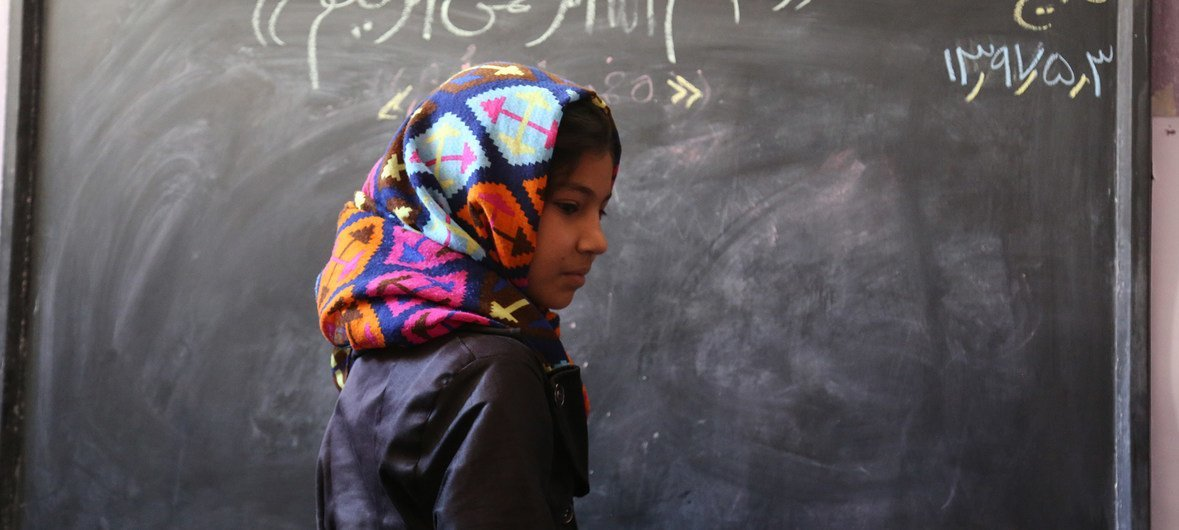Children Cancer Stories by Rukh Yusuf - Blog # 219
I am Rukh Yusuf, Clinical Pharmacist, also specialized in Total Parenteral Nutrition and Bone Marrow Transplant. I have been working in the Pediatric Oncology unit of a public hospital for several years. The mission of this blog is to bring to you the real-life stories of child patients suffering from cancer. Cancer is still a difficult disease to handle and treat. However, when it strikes the children, some so young that they cannot even speak, their agony is beyond expression and words. Let us pray especially for children suffering from cancer for early and complete remission. May Allah shower His Merciful Blessings upon them. Aameen.
Eman Fatima is a 10-year-old girl from Lahore. She lives in a small home with her parents and three siblings. Her father works as a daily wage laborer, and her mother manages the household. Until a few months ago, Eman was attending school regularly and was doing well academically. She especially enjoyed studies and spent time after school helping her younger brother with his reading.
In early January, Eman started developing unexplained fevers. Her mother noticed frequent bruises on her arms and legs, which she initially attributed to normal childhood activity. Over the next few weeks, the fevers became persistent, and Eman began complaining of fatigue and leg pain. After visiting a local clinic and getting basic blood work done, the family was advised to go to a tertiary care hospital in Lahore for further evaluation.
At the hospital, Eman underwent a series of tests, including a bone marrow biopsy. The diagnosis was B-cell Acute Lymphoblastic Leukemia (B-ALL). The medical team explained to her parents that this form of leukemia is treatable, especially in children, but the treatment would be long and would require frequent hospital visits, medications, and monitoring.
The news was difficult to process. Eman’s parents had little understanding of the disease and no previous experience navigating the healthcare system at this level. Treatment started with induction chemotherapy. The hospital, which runs a pediatric oncology unit, was able to cover the cost of Eman’s medications, blood tests, and inpatient stays. However, transportation to the hospital, missed workdays, and caregiving for the other children became ongoing challenges for the family.
Eman experienced the expected side effects of chemotherapy: nausea, hair loss, low blood counts, and fatigue. During the first few weeks of hospitalization, her mother stayed with her on a wooden bench next to her bed, while her father juggled caregiving responsibilities at home and tried not to miss work. Their concerns were not just about the illness, but about stability—how long they could continue to manage logistically and emotionally without additional help.
The hospital's social worker connected the family with a local nonprofit that provided monthly travel stipends and occasional food rations. These modest supports made a noticeable difference. With these, Eman has been able to attend her scheduled treatments more regularly, and her family has been able to keep some routines intact for their other children.
As of now, Eman has completed the induction and consolidation phases of her treatment and is continuing with maintenance therapy. She is able to spend more time at home and has resumed her schoolwork from home through assignments sent by her schoolteacher. She does not always feel well, and the follow-up visits and occasional transfusions are reminders that her journey is still ongoing.
This story of Eman is not unusual. Many families in Pakistan—and in other low- and middle-income countries—face similar difficulties when a child is diagnosed with cancer. The cost of care is often covered by hospitals or public systems, but the indirect costs—transportation, loss of income, caregiving—remain high and are rarely accounted for in policy or planning.
Eman’s experience shows us the need for not only treatment availability but also for structured support systems that assist families in maintaining continuity of care. Simple measures—such as travel subsidies, caregiver accommodations, nutritional support, and school reintegration—can significantly improve the experience of care for children like Eman.
More than inspiration, stories like Eman's are reminders of the life’s trials —and the need to address them with practical, sustainable solutions.
Prayers for the Ali and all the sick children and their families who have to face this pain of cancer. May Allah make it easy for them. Aameen






